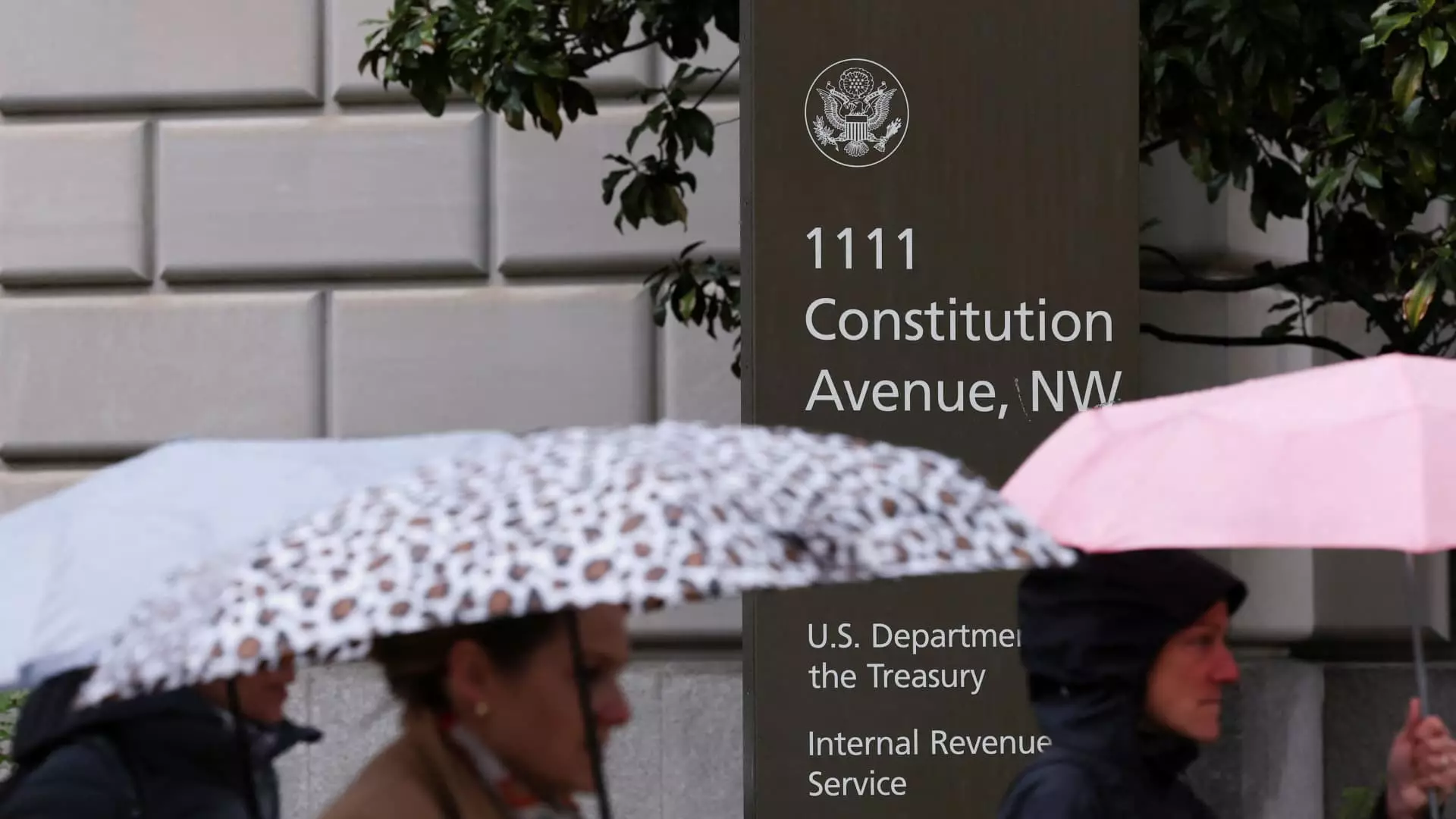In 2024, the IRS seemed poised to finally tackle the glaring inequities in tax collection, particularly among high-net-worth individuals and elite corporations. With a monumental $80 billion infusion from Congress, the agency embarked on a hiring spree aimed at bringing in young, technologically adept accountants and analytical minds who could unearth the intricacies of complex financial arrangements. Among these recruits was Wesley Stanovsek, a promising talent with specialized knowledge of S corporations and trusts. He was dubbed a “dream hire” for the IRS’s High Wealth division. However, this dream quickly turned sour; within months, he and many others found themselves unceremoniously dismissed, leaving substantial cases unresolved and inviting lucrative tax loopholes.
The fallout from this rapid staff turnover has been nothing short of alarming. The IRS, meant to be the watchdog against tax evasion and corporate malfeasance, is now in disarray. With Stanovsek’s dismissal, cases amounting to millions in potential tax recoveries were relegated to oblivion, effectively leaving the wealthiest taxpayers with a distinct advantage as they navigate an increasingly permissive environment.
A New Era of Inequity
High-income earners and their lawyers are now in a peculiar position—they find themselves reveling in the chaos. The palpable atmosphere of uncertainty has bred a new narrative: fewer agents equal fewer audits and heightened possibilities of tax evasion. The Biden administration’s prior efforts aimed at heightened scrutiny for those earning over $10 million a year are now at risk of being utterly dismantled. Wealthy individuals and their legal advisors are questioning the necessity of filing returns at all, cognizant that incomplete submissions may still trigger scrutiny due to the IRS’s sophisticated data systems. However, the stark truth remains that neglecting to file could invite severe consequences, a level of paradox that has not escaped the attention of tax professionals.
With the dwindling workforce, a looming tax apocalypse is on the horizon. Some predict an echo of the late 1990s—when budget cuts led to a surge in dubious tax schemes as loopholes emerged amidst staffing shortages. The lessons from our past seem completely lost on today’s policymakers, who are unwittingly inviting a renaissance of tax evasion tactics cloaked in the guise of aggressive planning strategies. The most disturbing implication is the projected loss of $160 billion in tax revenue over the next ten years should these staff cuts persist—an astonishing figure that hints at the broader social ramifications of allowing the wealthiest to further skirt tax responsibilities.
The Tools of Evasion: AI and Automation
In a misguided effort to maintain tax collections while reducing headcount, the IRS has begun to rely heavily on artificial intelligence (AI) technologies. Treasury Secretary Scott Bessent has asserted that technology will somehow enhance efficiency and streamline collections. This assertion, however, raises serious questions about the efficacy of an algorithm in navigating the nuanced terrain of tax laws, particularly when vast discrepancies lie in complex returns.
For every success in employing AI to flag potential malfeasance, one cannot help but wonder if the IRS might be overestimating the capabilities of these technologies. AI lacks the human touch necessary for critical follow-up inquiries and nuanced judgment calls—both essential in tackling sophisticated tax evasion strategies. Qualified agents provide invaluable insight and context, something AI simply cannot replicate. And therein lies the crux of the issue: as the IRS limps along, grounded in an ecosystem of cost-cutting and automation, it may inadvertently sow the seeds of rampant tax evasion.
Consequences Across the Board
The ramifications of inadequate tax auditing capacity will ripple far beyond the high-net-worth individuals who benefit from such leniency. If the IRS is unable to enforce its regulations effectively, the entire fabric of the social contract erodes. When the wealthy evade their fair share, the burden shifts to working-class citizens, perpetuating a cycle of inequality that threatens to destabilize the economy.
For businesses sitting in limbo due to unresolved audits or tax liabilities, the uncertainty breeds an environment rife with anxiety and frustration. Tax professionals find themselves entangled in red tape, unable to bring about resolution for their clients while facing a stifling bureaucracy. The IRS that once championed clear guidelines and responsiveness is now a ghostly silhouette of its former self, leaving taxpayers and their advisors in a morass of confusion.
In this precarious scenario, solutions must be sought urgently. Effective tax collection is not just about enforcing rules; it’s about maintaining faith in a system designed to serve the common good. As we careen towards a potentially disastrous fiscal abyss, we must ask ourselves—what kind of society allows the wealthy to exploit regulatory failures, while the vast majority foot the bill? The situation is critical and warrants an immediate reassessment of priorities, as the consequences will ultimately reshape our understanding of equity in taxation for generations to come.

